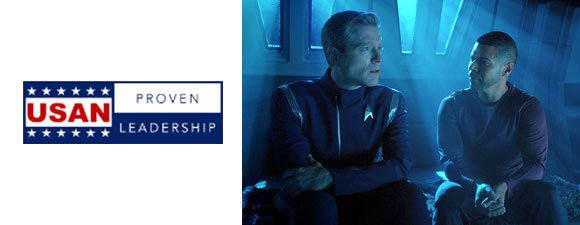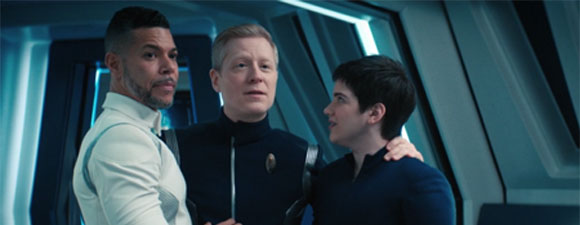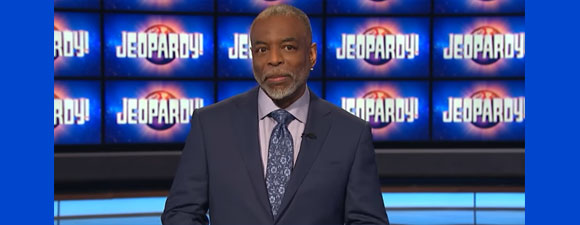And The New Director Of Star Trek 3 Is…
1 min read
One of the directors on the short list mentioned last week to helm Star Trek 3 has been chosen.
Justin Lin will be directing Star Trek 3.
According to Deadline, Lin was the only one on that list offered the job of directing the movie. Lin was available to direct because the movie that he was originally going to direct, the sequel to The Bourne Legacy, was postponed, freeing him up for other projects.
Roberto Orci remains as producer on Star Trek 3, which is due out in 2016.







Hey there Chris! I appreciate the thoughtful response. Nice work here.
I think the power of the film, for me, was moving me past the TOS notion of Khan being simply a one-dimensional Hitler character. In this new film, he clearly remains a megalomaniac bad guy. No doubt! But the backstory in this film gives him greater dimensions as a character than what Montalban had been given to portray in the earlier Khan role. Here we clearly see that Khan was hunted for his genetics, his people were rounded up and persecuted, and they were forced to flee to isolation. And when found, Khan was forced to serve Star Fleet under threat of his people being harmed. Pause for a moment to ponder who the real Hitler was in that story? The best Star Trek always causes us to appreciate something from another perspective – whether it be our perspective changing as we saw awful Borg develop as Seven of Nine, the gnarly Ferengi from TNG turn into almost lovable characters in DS9, and on and on. The STID film adds a little more back story to help us appreciate Khan’s journey and terrible position much more, even if it is still bad and we don’t agree with it. Sure those missiles were armed, but we saw several times how Khan paused to consider the people (his family) in those missiles ahead of his own immediate fate, the purpose not being to demonstrate him as a good family man, but to underscore the story of how he had been pursued in earlier life and now used by Starfleet. The purpose for this was to show us that he had some motivation for what he was doing other than just doing it to be a bad guy. Even bad guys can have things driving them, and this is what the movie worked at showing us. I would say this was not well demonstrated in older Trek. Khan was just Khan and more or less we had to accept him as Hitler. This movie stayed just true enough to that to help old fans see a version of Khan, while also turning it on its ear a bit and help us to consider why Khan might do what he did, and what that said about the Starfleet that we know and love.
On primacy of family, I encourage you to watch the two new films back to back and see the development of the Kirk / Spock relationship. What started in the first film is culminated in the second. The scenes where Kirk is betrayed by Spock in Pike’s office and then when Kirk and Spock split for different ships show Kirk’s disappointment that Spock doesnt get that Kirk is a close friend who would die for him. Pike’s death is a transitional scene for that, as Kirk passes his connection to Pike to Spock visibly (not with words). And we see it in a few other small scenes until finally Spock gets that when Kirk dies. We also see this theme in Spock telling Uhura about why he is emotionally solemn when they are in the shuttle. We might say it can be seen in Scotty being dismissed and how heart felt that was leaving the family. We saw it in Sulu ‘growing up’ and taking his rightful place even more with the group as he sat in the captain’s chair. The dialog with Pike in the bar taking a role as a fatherly figure for Kirk’s development again is another scene. All of these kinds of scenes build the crew as a clearer family that learns to trust and rely on each other in space, not just be crew on a ship nitpicking each other like they were at the start of the first movie.
On exploration, well, its one of those….’its the journey’ type things. The first two movies clearly were designed to build the backstory of Trek that we never got to see in TOS. I think that was great. But they increasingly do hint at the real mission being ‘out there.’ From Kirk as a young man on Earth looking at the Enterprise being built in the first movie, to his first view of the Enterprise in Space, to his first mission against Nero which was forced upon him but showed the thrill and danger of space, to the start of STID on the alien planet, to the dialog with Kirk telling Spock that he hoped for the five year mission as they walked into Star Fleet, to the speech Kirk gave at the end about Starfleet’s mission, to the end scene, these scenes all progressively build up the theme, like a snowball rolling down getting bigger, that the mission of Star Fleet, the Enterprise and her crew is to be ‘out there.’ And in the end of the film we see indeed that is where they are headed. That the story for that was developed, not handed to us as the starting point, is a good thing in my view.
I’ve been a fan since ’66 and met the Great Bird hisself in ’72 when he was carting around the pilot workprint and blooper reel to conventions and gatherings, and I was drawn to Trek originally by its intelligence, enthusiasm, optimism, and utter lack of cynicism, none of which qualities have been present in the two JJ films. That’s why I despise what JJ and Company have done to Star Trek; they’ve killed the dream through their greed and stupidity.
I don’t need Shatner or Stewart to enjoy Star Trek. In fact, that is one of the problems with the Abrams films, his need to bring us back to some form of Kirk and Spock. Star Trek isn’t a comic book story. The universe is bigger than Kirk, Spock or Picard.
You talk about an open mind, if you read my comment you know that I was defending literately every version of Star Trek pre-Abrams. As a matter of fact, it was getting to the point that some fans I came across would tell me that I’d like anything with the Star Trek name slaped on it. My point being is that I’ve been VERY opened minded about the franchise and all it’s changes, so when I put the breaks on JJ-Trek and call it out as crap, I don’t say that lightly. Those themes you claim are there, they really aren’t. But hey, if they help make you a better person, good for you. Just please don’t tell me that they are Star Trek, they aren’t and they never will be Star Trek. In fact, I’m rather sure the powers that be behind these films are rather clear in their intentions.
You know, truth be told, I’d be totally OK with these films existing IF CBS was making the real thing still on TV in some form. I’d never spend another dime on JJ-Trek, but I don’t really care that they exist, except for the very simple fact that as long as they exist, the real thing can’t. Yes, I’m aware that we have 6 series and 10 films of classic Trek, and I enjoy all of it, but it would be really nice to enjoy NEW Star Trek. Maybe I’m just spoiled being a fan of the 80’s and 90’s when it felt like Trek would always be on, but a guy gets used to certain things and it just gets hard when it’s not there anymore. I’d tend to doubt I’m alone in that feeling around here.
Anyway, Star Trek in Name Only, enjoy it because I won’t. My standards are a bit higher thank you very much, and that even including that horrid Voyager episode “Threshold.” Which of course is still better Trek than anything from JJ Abrams.
I disagree. TOS Khan clearly had a more familial relationship with his men than JJ-Khan. In fact, JJ-Khan lazily rests on the notion that you know anything about TOS Khan and can accept they are the same character. For so called new fans, I’d imagine that would be very confusing and it goes back to one of my biggest gripes with JJ-Trek, they should either have kept their films in continuity or full on rebooted things. This “kind of sort of” reboot that they claim is what these films are isn’t helping their story, it’s hurting it.
Anyway, TOS Khan did have things that drove him. In “Space Seed” it was his honest feelings that he was the superior person and in “The Wrath of Khan” it was the death of his wife. You are trying to make him out to be a one-dimensional character, and that is something he is not, especially in TWOK. Even as a kid watching that film I knew that Khan wasn’t completely wrong in the feeling he had that drove his actions. Rather, he let revenge cloud his mind and he suffered for it ultimately. JJ-Khan lacked any of this same depth.
You must watch Space Seed and TWOK again. That movie and episode added dimension to Khan that you point out in STID. At the end of Space Seed, we see Khan defeated, but a sense of excitement as a new challenge awaits him in building a colony for his people. We see a bit of honorability in his accepted defeat and ambition facing the challenge. The movie offers a near Shakespearean element with the perfect driving point in blinding revenge, which ultimately gets him and his “family” killed. It begins with Kirk stranding Khan on Ceti Alpha V and never bothering to check on the Botany Bay crew. So, when Ceti Alpha VI blows up and wrecks V, Khan and Co. must tackle near insurmountable odds to survive, costing his loving wife and several friends. And again, the scene where Joachim dies. How is that not what you exactly say? It has been already done in Old Trek as to The_Comic’s point and counterpoint to your assertion. I mean no disrespect in saying this, but your point is completely wrong.
As to your second point, we do see some of what you are saying. However, the Uhura scene in the shuttle comes across as an otherwise competent officer being reduced to a nagging girlfriend. Watch the Honest Trailer and you will see what I mean. It is juvenile, especially on mission, when these people should be more professional. Any kind of conflict between “family” was handled much better in Old Trek. Pike the fatherly figure was already established in the first movie and is thus rehashing in STID. Copy, Paste. And the Pike death was more for Spock than Kirk. The Sulu scene, while well done in my opinion, was just a nod to Old Trek. Nothing really more.
The final point of your essay makes sense and may be analyzed as that, but it came across as seeing ST 2009 again. There was really no character development between these two movies. We had to build again up to the same point we left off of in ST 2009. It even felt at times like Star Frat ATΩ.
I am glad you appreciate Trek as much as we do, and as already said to each his own. But you did make some errors in your assertions and conclusions.
Be Well and Happy New Year’s.